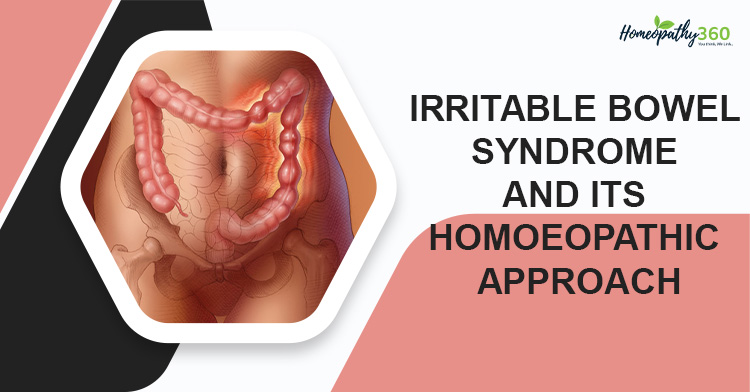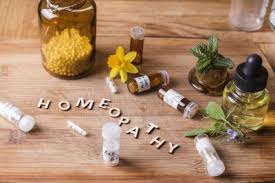
Abstract
Irritable bowel syndrome (IBS) is the most prevalent functional gastrointestinal disorder noted in the general population worldwide. It is chronic in nature, signs and symptoms which vary periodically from mild to severe have many negative effects on the quality of life for the sufferer; therefore, the appropriate treatment of these patients is highly important. Patients should be informed by their doctors that the nature of the disease is benign, and should be educated on how to deal with, and control symptoms of the disease.
Keyword – IBS, pathology, Homoeopath
Introduction
Irritable bowel syndrome (IBS) is a common functional gastrointestinal disorder characterized by chronic, recurrent abdominal discomfort and pain, with changes in bowel habits.
Besides that, digestive symptoms such as dyspepsia, dysphagia, non-cardiac chest pain and nausea are also frequently encountered in patients with IBS. On the other hand, IBS also shows comorbidity and association with other functional gastrointestinal and non-gastrointestinal disorders such as chronic pelvic pain, temporomandibular joint disorder, fibromyalgia and chronic fatigue syndrome.
Most profoundly, psychiatric associated comorbidities such as anxiety, depression and somatoform disorders are highly linked with IBS, where these comorbidities require further medical attention. If left untreated, these psychiatric comorbidities will impose negative impact on the quality of life. Usual care for IBS commonly includes advice on lifestyle, including diet and stress reduction, possibly combined with medication.
WHO DMS -IV code has categorized patients with IBS into four major subtypes depending on the predominant stool pattern.
- IBS with constipation (IBS-C),
- IBS with diarrhea (IBS-D),
- IBS with mixed bowel habits (IBS-M) and
- Unclassified IBS.
Currently, the Rome IV Diagnostic Criteria, which provides symptom-based criteria is generally applied for diagnosis of IBS and other functional gastrointestinal disorders.
The onset of IBS-related symptoms often occurs during adolescence, more in females than in males.
Approximately 20 to 40% of all visits to gastroenterologists are due to IBS symptoms. The impact of IBS can range from mild inconvenience to severe debilitation. It can control many aspects of a person’s emotional, social and professional life.
Etiology
The etiology is likely multifactorial, involving dysregulation of the hypothalamic–pituitary–adrenal (HPA) axis, neuroendocrine alterations, and visceral hypersensitivity, which result in the hallmark symptoms of abdominal pain and disordered gut motility. Chronic, low-grade, subclinical inflammation has been implicated in the disease process and is thought to perpetuate the symptoms of IBS
Pathophysiology
The pathophysiology of IBS is broad and includes abnormalities involving motility, visceral sensation, brain-gut interaction, and psychosocial distress. One of these can usually be demonstrated in the majority of IBS patients, however not all symptoms can be attributed to them. Recent studies have also shown altered gut immune activation, and intestinal and colonic microbiome are associated with IBS. Environmental contributors to IBS include early life stressors, food intolerance, antibiotics, and enteric infections. Patients often complain that IBS symptoms are related to food intake. However, a true food allergen has a limited contribution to IBS.
Pathophysiology of IBS is complex and is considered to be due to combination of several factors, such as –
- motor abnormalities, such as increased frequency and irregularity of luminal contractions, prolonged transit time with constipation predominance, and an exaggerated motor response to cholecystokinin and meal ingestion with prominent diarrhea symptoms;
- increased sensation in various receptors in the gut wall in response to stimuli leading to distention and bloating;
- activation of the mucosal immune system characterized by alterations in particular immune cells and markers leading to increased release of nitric oxide, histamine, and proteases. These, in turn, stimulate the enteric nervous system and lead to abnormal motor and visceral responses within the intestine;
- increased risk associated with viral, bacterial, protozoan, and helminth infections;
- malabsorption, for example, due to bile acid malabsorption, as a result of enteric infections;
- increase in serotonin-containing entero-endocrine cells and T lymphocytes following acute Campylobacter enteritis. This leads to increased gastrointestinal motility and visceral hypersensitivity;
- drug induced
- changes in gut microflora;
- small intestinal bacterial overgrowth (SIBO);
- sensitivity to certain foods such as fructose intolerance and gluten sensitivity;
- polymorphisms in the serotonin transporter gene that may result in changed serotonin reuptake efficacy which, in turn, influences intestinal peristalsis; and
- stress, increased anxiety, depression, and phobias. [9]
History and Physical Examination
Symptoms are brought on by food intake, and a change in pain location, and stool pattern with time.
Concerning features would include onset after 50 years of age, severe or progressive symptoms, unexplained weight loss, nocturnal diarrhea, rectal bleeding, iron deficiency anemia, or a family history of organic gastrointestinal diseases such as colon cancer, celiac disease, or inflammatory bowel disease.
Additional history that would be important would include travel and social history.
Palpation may reveal a tenderness if there is constipation, with pain in the hepatic flexure and splenic flexure
The Rome IV criteria is used to diagnose IBD, which requires at least 3 days a month in the last 3 months associated with 2 or more of the following: improvement in abdominal pain or discomfort with defecation, onset associated with a change in frequency of stool, and/or an onset accompanied by a change in form or appearance of stool.
Lifestyle factors
- excessive use of caffeine
- poor or mal nutrition
- stress
- inadequate sleep and water intake
Differential Diagnosis
The differential diagnosis of IBS is broad and ultimately depends on whether the patient has predominant diarrhea or constipation.
- If a patient has IBS with diarrhea, the differentials includes lactose intolerance, caffeine intake, alcohol intake, gastrointestinal infections (Giardia, Amoeba, HIV), inflammatory bowel disease, medication-induced diarrhea (antibiotic use, proton pump inhibitor, nonsteroidal anti-inflammatory drugs, ACE inhibitor, chemotherapy), celiac disease, malignancies, colorectal cancer, hyperthyroidism, VIPoma, and ischemic colitis.
- If constipation is the predominant symptoms, then the differentials can include inadequate fiber intake, immobility, Parkinson’s disease, multiple sclerosis, spinal injury, diabetes, hypothyroidism, hypercalcemia, medication-induced (opiates, calcium-channel blockers, antidepressants, clonidine), malignancies, bowel obstruction, endometriosis, and diverticular disease.
If a patient’s history indicates one of these diseases, then appropriate lab testing should be pursued.
Treatment / Management –
One of the most important goals in the management of IBS patients is to develop a trusting patient-physician relationship by actively listening, showing empathy, and setting realistic expectations for treatment. IBS is a symptom-based disorder, and thus treatment goals are aimed at resolving symptoms such as pain, bloating, cramping, and diarrhea or constipation.
- Avoiding dietary triggers
- Small meals at frequent intervals
- Increased water intake
- Fiber-rich foods in the diet
- Management of stress
Mostly this disorder is of chronic nature and no fixed treatment is found in modern medicine. Here is why, homoeopathy becomes the commonest opted treatment in such cases.
Homoeopathic Therapeutics –
Though there are various approaches in the selection of similimum, and based on various studies and symptom similarity, some of the drugs that are often used in the treatment of IBS are –
- Nux Vomica: Mind is irritable, anxious about business constipation with frequent ineffectual urging and unsatisfactory, constriction of rectum, absence of all desire for defecation is contra-indication. Stool very painful. Diarrhoea worse morning, frequent small evacuation with much urging , after stool relives pain, uneasiness in rectum.
- Podophyllum: Delirium from eating acid fruits, gastroenteritis with colicky pain , stool watery with jelly like mucus, painless, profuse, and offensive, hypo gastric pain, diarrhoea for long standing, greenish watery. All complaints aggravated in early morning and hot weather.
- Sulphur: Always irritated, depressed, always uncomfortable,dirty, offensive character of discharge, excessive appetite, putrid eructation, great acidity, itching and burning of anus , frequently, unsuccessful desire, hard , knotty insufficient stools, morning diarrhoea painless, prolapses recti, haemorrhoids.
- Asafoetida: Over sensitive, intolerably nervous, flatulence and spasmodic contractions of stomach and oesophagus, reverse peristalsis, foul , thin acrid secretions, sharp , stitching pains, fistula with foul pus, diarrhoea dark, watery, bad odour.
- Natrum carb: Mental weakness and depression, anxious and restless, feels swollen of abdomen, very weak digestion, depressed after eating, sour stomach and rheumatism, sudden stool urge, orange like pulp stools, diarrhoea from milk.
- Lycopodium: Afraid to be alone, very sensitive, constantly fearful, weak memory, dyspepsia due to farinaceous and fermentable food, sour eructation weak digestion, excessive bloating, bitter taste in mouth after eating, diarrhoea, ineffectual urging, stool hard, difficult, small, incomplete haemorrhoids.
- Argentum nitricum: Mind fearful and nervous, anxiety is hidden, belching with gastric ailment, nausea , vomiting of mucus, burning and construction, gastritis of drunkards, enormous distension, ulcerative pain on left side of stomach, watery, green like chopped spinach with mucus, offensive diarrhoea, immediately after eating or drinking, itching of anus.
- Colocynthis: Extremely irritated, nausea, vomiting, agonising cutting pain in abdomen, colicky with cramps, cutting pain after eating, dysenteric stools after eating or drinking least food, jelly like stools, distended abdomen.
- Lilium tigrinum: Weeps, anxious, fear, aimless hurried manner, trembling sensation, pressure downward and backward against rectum and anus, constant desire to defecate, pressure in rectum, early morning urgent stools, dysentery mucus and blood, usually in plethoric and nervous women.
- Rhus Toxicodendron: Fearful,anxious, fright, fear of darkness, anxiety about unusual things, watery, involuntary stools, beginning of typhoid, large hard sensation in rectum, dark brown with mucus, difficult to pass stool, hard, knotty as if burnt, diarrhoea due to change of weather, bright yellow whitish slimy.
Summary
Irritable bowel syndrome is a functional gastrointestinal disorder with symptoms including abdominal pain associated with a change in stool form or frequency. The condition affects otherwise healthy individuals at any one point in time and, in most people, runs a relapsing and remitting course. The best described risk factor is acute enteric infection, but irritable bowel syndrome is also more common in people with psychological comorbidity and in young women than in the rest of the general population. The pathophysiology of irritable bowel syndrome is incompletely understood, but it is well established that there is disordered communication between the gut and the brain, leading to motility disturbances, visceral hypersensitivity, and altered CNS processing. In most people, diagnosis can be made on the basis of clinical history with limited and judicious use of investigations, unless alarm symptoms such as weight loss or rectal bleeding are present, or there is a family history of inflammatory bowel disease or coeliac disease. Once the diagnosis is made, an empathetic approach is key and can improve quality of life and symptoms, and reduce health-care expenditure. The mainstays of treatment include patient education about the condition, dietary changes with soluble fibers, as well as psychological therapies. Other treatments tend to be reserved for people with severe symptoms. Various studies have shown that homoeopathy has been found to be effective in reducing the symptoms of IBS and improving the quality of life in patients suffering form IBS.
Reference
1.Vahedi H, Ansari R, Mir-Nasseri M, Jafari E. Irritable bowel syndrome: a review article. Middle East J Dig Dis. 2010 Sep;2(2):66-77. PMID: 25197516; PMCID: PMC4154827.
2. Kawoos Y, Wani ZA, Kadla SA, Shah IA, Hussain A, Dar MM, Margoob MA, Sideeq K. Psychiatric Co-morbidity in Patients With Irritable Bowel Syndrome at a Tertiary Care Center in Northern India. J Neurogastroenterol Motil. 2017 Oct 30;23(4):555-560. doi: 10.5056/jnm16166. PMID: 28738451; PMCID: PMC5628988.
3. Shulman RJ, Öhman L, Stridsberg M, Cain K, Simrén M, Heitkemper M. Evidence of increased fecal granins in children with irritable bowel syndrome and correlates with symptoms. Neurogastroenterol Motil. 2019 Jan;31(1):e13486. doi: 10.1111/nmo.13486. Epub 2018 Oct 9. PMID: 30298961; PMCID: PMC6296885.
4. Ng QX, Soh AYS, Loke W, Lim DY, Yeo WS. The role of inflammation in irritable bowel syndrome (IBS). J Inflamm Res. 2018 Sep 21;11:345-349. doi: 10.2147/JIR.S174982. PMID: 30288077; PMCID: PMC6159811.
5. Dos Santos AL, Perazzo FF, Cardoso LG, Carvalho JC. In vivo study of the anti-inflammatory effect of Rhustoxicodendron. Homeopathy. 2007 Apr;96(02):95-101
6. Patel N, Shackelford K. Irritable Bowel Syndrome. [Updated 2021 Jul 10]. In: StatPearls [Internet]. Treasure Island (FL): StatPearls Publishing; 2022 Jan-. Available from:
About Author:
Dr Preetish Patil
PG Scholar
Department of Practice of Medicine
Guide: Dr M K Kamath
Father Muller Homoeopatic Medical College and Hospital
Deralakatte, Mangaluru
575018





